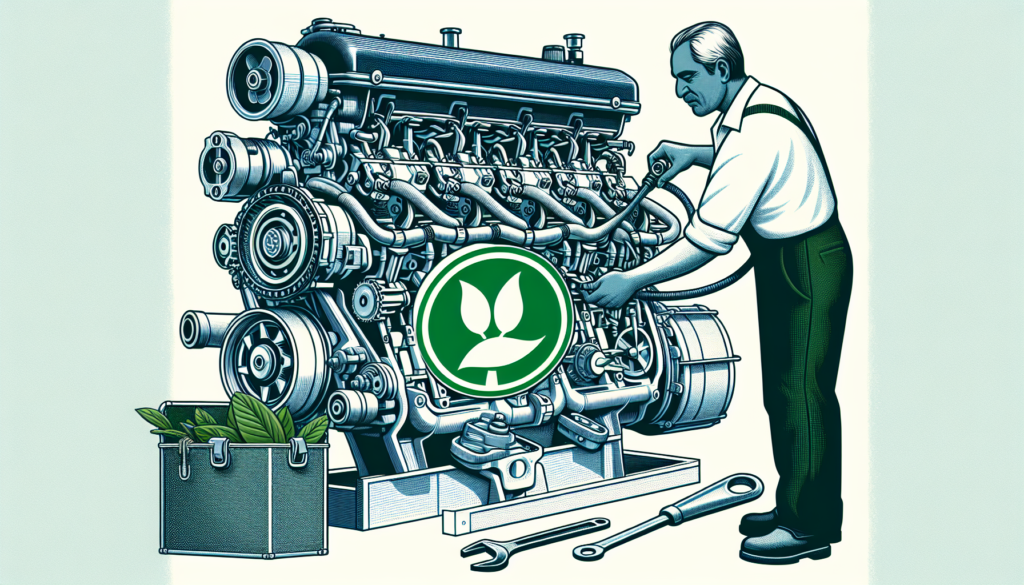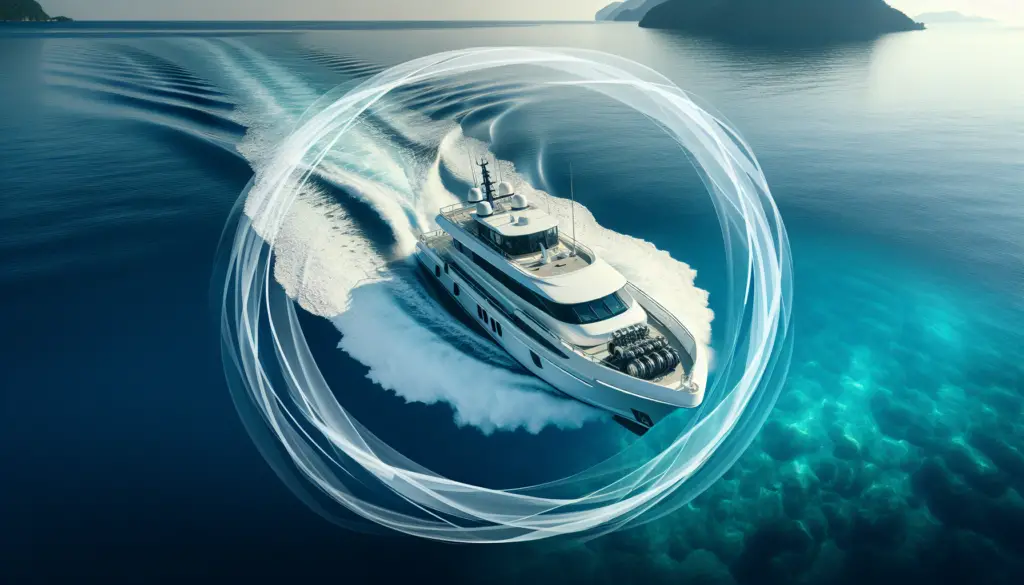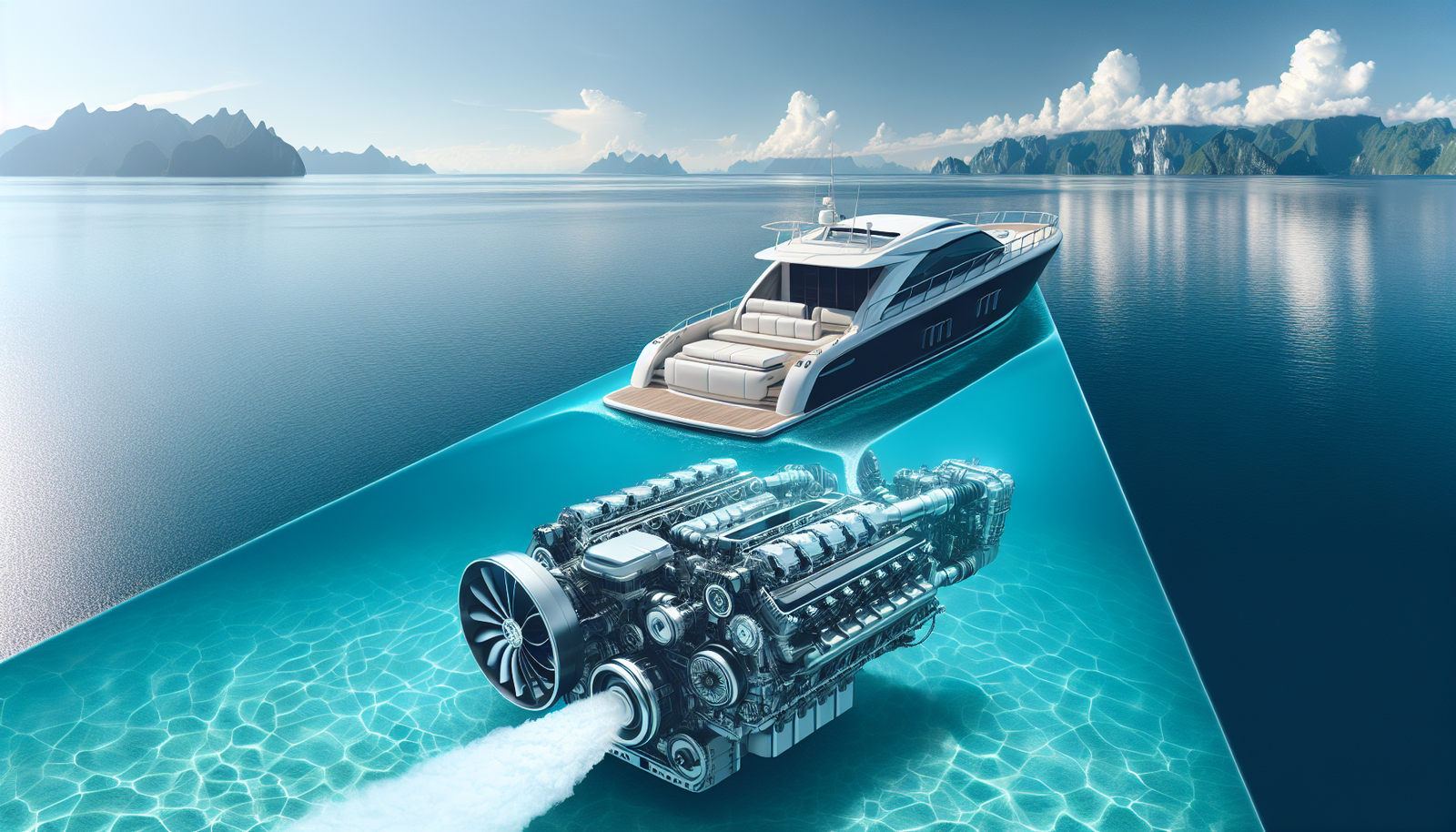Navigating the waters can be even more enjoyable if you’re doing your part to protect the planet. You’re about to learn how to reduce carbon emissions from your boat engine. As a boat owner or enthusiast, it’s time to face the tide of environmental responsibility. Be ready to discover techniques and modifications that will make your sea adventures more eco-friendly. “How To Reduce Carbon Emissions From Boat Engines” is your guide map to merging your love for marine trips with sustainable practices.

Understanding the Impact of Boat Engines on Environment
Every time you fire up your boat engine, have you ever wondered how it affects the environment? Boat engines, like other engines, have a significant impact on the environment, notably through carbon emissions.
The connection between boat engines and carbon emissions
Boat engines, particularly those that run on fossil fuels like diesel or petrol, produce carbon emissions. When the fuel is burned in the engine, it releases carbon dioxide into the atmosphere. Carbon dioxide is a major greenhouse gas that contributes significantly to global warming.
Amount of carbon emissions from boats and its contribution to global warming
Boat engines contribute a significant amount of carbon emissions globally. While it’s hard to quantify the exact amount, it’s well recognized that the maritime industry, which includes all types of boats, ships, and vessels, contributes about 2.5% of global greenhouse gas emissions. This may seem like a small percentage, but in the grand scheme of things, it has a sizable impact on global warming.
Negative effects of boat carbon emissions on wildlife and marine life
Aside from contributing to global warming, boat carbon emissions also negatively impact wildlife and marine life. Carbon emissions from boats can lead to ocean acidification, reducing the ocean’s ability to absorb more carbon dioxide, impacting marine life who are sensitive to changes in pH levels. These changes can also affect the food chain and disrupt biodiversity.
Types of Boat Engines and Their Emission Levels
Knowing the impact of boat engines on the environment, it’s necessary to understand the types of boat engines and their emission levels.
Comparing carbon emissions from diesel, petrol, and electric boat engines
Generally, diesel engines produce higher levels of carbon emissions than petrol engines. However, diesel engines are typically more fuel-efficient, which can partially offset their higher emissions levels. On the other hand, electric engines produce zero emissions at the point of use, making them the most environmentally friendly option.
Identifying high emission boat engine models
Identifying high emission boat engine models can be tricky as it may require technical knowledge. Usually, older models of boat engines tend to have higher emissions due to inefficiencies and outdated technologies. Look for boat engines certified by environmental standards as a guide.
Understanding emission standards for different types of boat engines
There are various emission standards globally for different types of boat engines. These standards are set to limit the amount of pollutants, including carbon dioxide, that an engine can emit. Adhering to these standards is crucial to minimize the environmental impact of your boat operation.

Maintenance Practices for Lower Emissions
Regular maintenance is key to keeping the emission levels of your boat engine under control.
Importance of regular engine checks
It’s important to conduct regular engine checks. This can help to identify and rectify any issues early, which could otherwise lead to higher emissions or even damage to the engine. Regular checks also ensure that your boat engine operates at optimal efficiency.
Appropriate maintenance schedule for lower emissions
Adhering to an appropriate maintenance schedule is key to lowering emissions. This usually involves regular oil changes, filter replacements, and inspecting various engine components. A well-maintained engine not only produces fewer emissions but also lasts longer.
Role of engine tuning in emission reduction
Similarly, engine tuning can play a role in emission reduction. This process involves adjusting various engine parameters to optimize its performance. Well-tuned engines typically function more efficiently and, as a result, produce less carbon emissions.
Fuel Choices to Reduce Emissions
The type of fuel you use for your boat engine can also play a role in reducing emissions.
Understanding benefits of biofuel
Biofuels are made from renewable resources and are considered to result in fewer greenhouse gas emissions compared to traditional fossil fuels. These fuels are worth considering to reduce your boat’s carbon emissions.
Comparing emissions from different fuel types
Each fuel type has a different emission profile. Typically, diesels have higher carbon emissions but are more fuel-efficient. Petrol engines tend to have lower carbon emissions but are less fuel-efficient. Electric bowties produce zero emissions but rely on batteries which carry their own environmental challenges.
How to switch to greener fuel options
Switching to greener fuel options isn’t as daunting as it may seem. The first step to making the switch is to check if your boat engine can tolerate the new fuel, then it’s as simple as using the new fuel instead of your regular choice.

Upgrading Old Engines to Reduce Emissions
If you’ve been running the same boat engine for several years now, you might want to consider upgrading.
Benefits of modern, lower emission engines
Modern boat engines are designed to be much more efficient and cleaner than older models. Many new engines are built to meet strict environmental standards, producing far fewer emissions. You’ll also get the benefit of improved fuel efficiency and often better performance.
Considering the cost of engine upgrade vs environmental impact
An engine upgrade can be quite a hefty investment. But when you consider the environmental impact of sticking with an old, high-emission engine, the cost can certainly be justified.
Steps to upgrading your boat engine
Upgrading your boat engine usually involves selecting a new engine that fits your boat and meets your requirements. You would then remove the old engine and install the new one. It may be helpful to engage a professional for this task.
Use of Emission Control Devices
Modern engines often incorporate emission control devices. These devices serve to further reduce the emissions produced by the engine.
Understanding how catalytic converters reduce emissions
Catalytic converters are a type of emission control device commonly used in petrol engines. They work by catalyzing a chemical reaction that breaks down harmful emissions into less damaging substances.
Choosing the right emission control device for your engine type
The specific emission control device suitable for your boat will depend on the type of engine you have. Some boats may use a particulate filter, while others may have a catalytic converter. It’s important to consult a professional for advice on what’s best for your specific situation.
Installation and maintenance of emission control devices
The installation of these devices usually needs to be done by a professional. Once installed, regular maintenance of your emission control device is vital to ensure it continues to function properly and help in reducing your boat’s emissions.

Switching to Electric or Hybrid Engines
One of the most significant measures you can take to reduce your boat’s carbon emissions is to switch to an electric or hybrid engine.
Benefits of electric and hybrid engines
Electric engines produce zero emissions, while hybrid engines can reduce emissions by combining a conventional engine with an electric motor. Both options will drastically reduce your boat’s carbon footprint.
Understanding the feasibility of electric engines for different boat types
The feasibility of electric engines depends on your boat type and usage. Smaller boats and those used for short trips are often the best candidates for going electric. Larger boats and those used for long trips may need to consider hybrid engines.
How to transition from traditional to electric or hybrid engines
Transitioning from a conventional to an electric or hybrid engine is a big step. You need to deliberate on factors like cost, the range of the boat, and the availability of charging facilities.
Boat Operation Techniques for Reduced Emissions
How you operate your boat can significantly affect emission levels.
Practices for fuel-efficient boating
Fuel-efficient practices include smooth acceleration and deceleration, maintaining a steady speed, and avoiding unnecessary idling. These practices not only save fuel but also lower emissions.
Impact of boat speed on emissions
The speed at which you operate your boat also impacts emissions. Generally, higher speeds result in higher fuel consumption and thus more emissions. Maintaining a moderate speed can therefore help to reduce emissions.
Optimizing load and weight distribution for efficiency
A properly balanced boat consumes less fuel, resulting in lower emissions. It’s therefore important to consider how you distribute weight on your boat and to avoid unnecessary excess weight.
Advocating for Greener Boating Policies
Adopting greener boating practices individually is important, but advocating for broader change can have an even more significant impact.
Understanding the role of legislation in emission control
Legislation plays a crucial role in emission control. Laws and regulations can set industry-wide standards for emissions, mandate the use of greener fuels, and promote the adoption of emission control technologies.
How to support local and global initiatives for greener boating
There are likely various local and global initiatives aimed at promoting greener boating. These may include campaigns advocating for legislative change, educational programs, and initiatives to develop cleaner technologies. Supporting these initiatives can help to further reduce the environmental impact of boating.
Promoting community awareness and education on emission reduction
Promoting awareness and education on the importance of emission reduction in your local boating community can also bring about significant change. This can involve sharing information, organizing educational events, or even leading by example.
Future Technologies for Low-Emission Boating
The boating industry is evolving with emerging technologies promising a cleaner future.
Exploring the potential of solar-powered boats
The potential of solar-powered boats is immense. With zero emissions and renewable power, they represent one of the cleanest options for boating. While the technology is still in its infancy, it holds great promise for the future.
Emerging innovations in engine design and fuel
Innovations in engine design and fuel are also underway. These range from more fuel-efficient engines and improved emission control devices to alternative fuels that produce fewer emissions.
Impact of advances in battery technology on electric boating
Advances in battery technology are making electric boating more viable. Batteries are becoming more efficient, lighter, and able to store more energy, making it increasingly feasible for more boat types to go electric.
In closing, while boat engines can indeed contribute to carbon emissions and environmental impact, numerous strategies and solutions can reduce this impact. From regular maintenance and fuel choices to adopting newer technologies and advocating for greener policies, every boater has a part to play in preserving our environment and ensuring that we can enjoy boating for generations to come.

